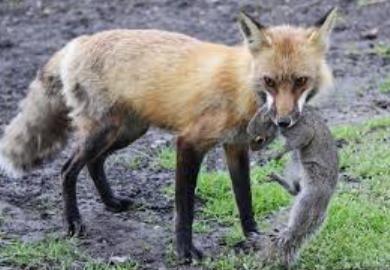(单词翻译:单击)
听力文本
For the bison, it will be a matter of brute strength.
对于美洲野牛来说,用蛮力就可以做到。
Massive neck muscles enable them to shovel five tonnes of snow a day.
强大的颈部肌肉让他们每天可以铲五吨的雪。
Their light-weight neighbour needs more precision.
他们小巧的邻居则需要更高的准头。
The bison have reached their goal, a mouthful of withered grass.
美洲野牛达到了目的,一大口枯草。
And where the bison have dug, the fox now spots an opportunity.
在美洲野牛挖过的地方,狐狸也见缝插针。

Every footstep counts, but he mustn't break through... Yet.
每一步都至关重要,但是时机...还未到。
He listens carefully to pinpoint his target. It's moving.
他仔细监听着猎物的一举一动。它在移动。
A vole. Small, but 100 times more nutritious than a mouthful of dried grass.
一只野鼠。虽然小,但是比一嘴干草的营养价值高上百倍。
To get through the winter on these prairies, sometimes brain beats brawn.
想要在这草原上度过严冬,有时候脑子比蛮力更加重要。
Ultimately, life on all grasslands depends on the turn of the seasons.
最终,所有草原上的生物都依赖于季节的更迭。
视频及简介
草原覆盖了所有土地的四分之一,支持着野生动物的大量聚集,但为了在这里生存,动物必须忍受地球上最恶劣的季节性变化。从亚洲怪异的西贡羚羊,到巴西的巨型食肉动物,草原动物已经以不同寻常的方式适应了这些极端。在被洪水淹没的奥卡万戈,狮子在史诗般的战斗中,在大草原上捕食一头令人生畏的水牛,捕食者利用大象来帮助捕捉昆虫,在寒冷的北部苔原上,驯鹿开始在饥饿的北极狼的阴影下进行大迁徙。


